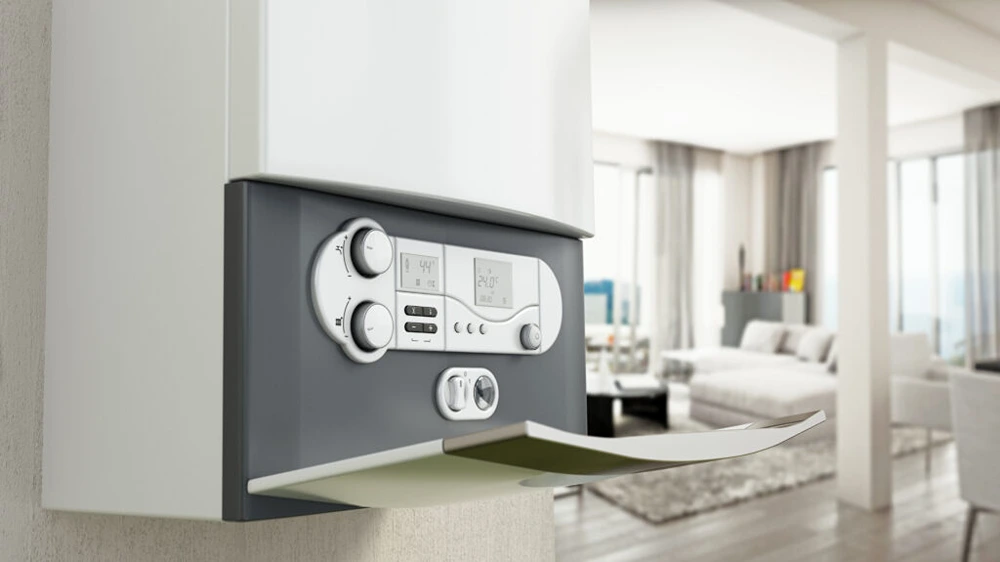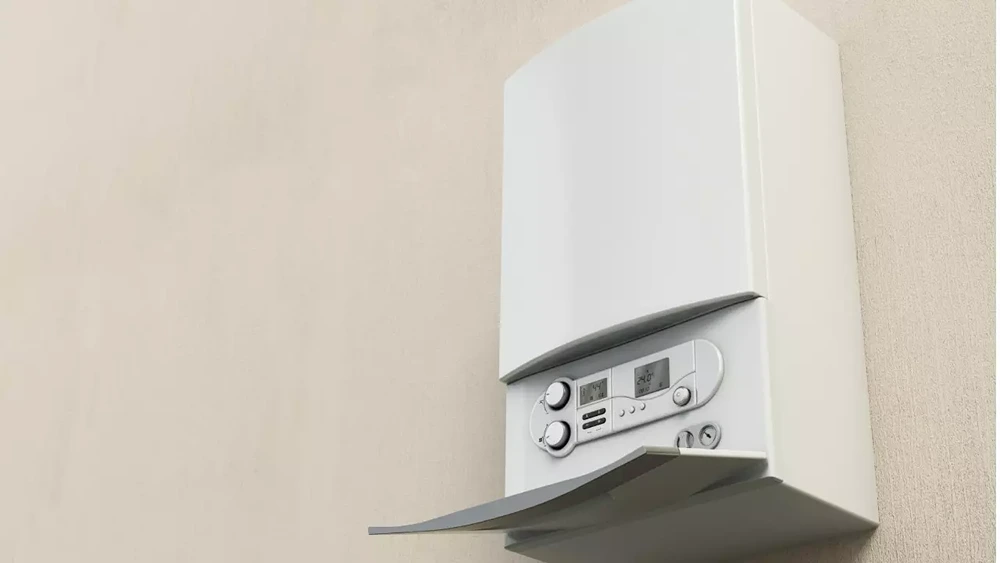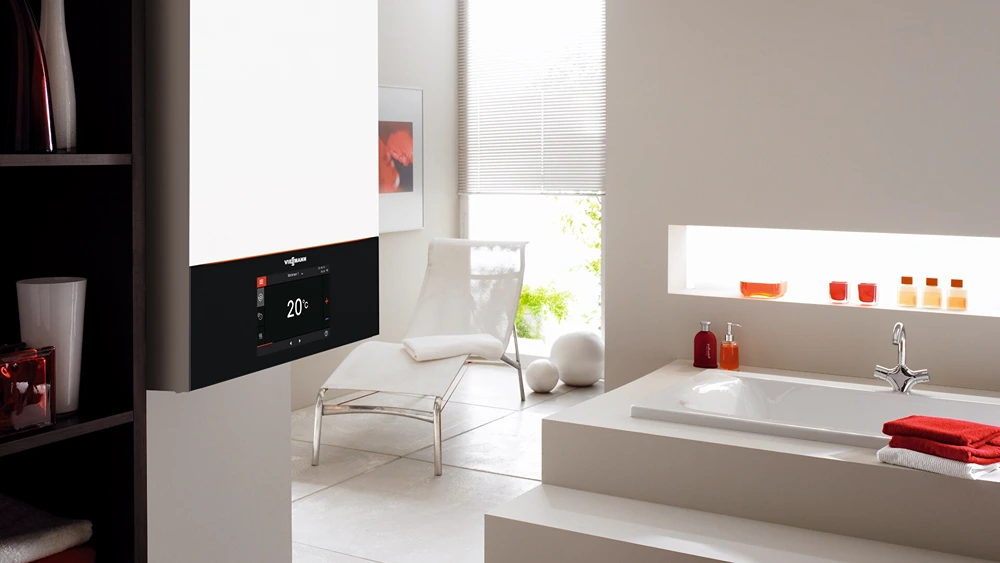Is your home’s temperature failing to meet your comfort standards, even with the heating on full blast? Upgrading your boiler could hold the answer. The process of upgrading your boiler system involves evaluating current needs and selecting the most efficient model available. This not only enhances home comfort but also improves energy efficiency, leading to reduced utility bills and a smaller carbon footprint. By investing in a modern system, homeowners can enjoy a more sustainable and comfortable living environment. An outdated boiler is not just inefficient; it can drastically compromise your home’s comfort level. Modern boilers utilise advanced technologies that significantly enhance heat distribution and energy efficiency. For those living in Glasgow, upgrading to a modern gas boiler in glasgow can offer even more tailored benefits. The local climate demands efficient heating solutions, and a modern gas boiler can provide consistent warmth while reducing energy costs. This upgrade not only improves home comfort but also aligns with environmental goals by lowering emissions. This article dives deep into the benefits of boiler upgrades, showing how they can transform your home into a warm, energy-efficient haven. Stick around to uncover how modern boiler systems can elevate your living experience.

Benefits of Boiler Upgrades for Home Comfort
Upgrading your boiler can significantly enhance home comfort by improving energy efficiency. Modern boilers are designed with advanced technology that ensures higher efficiency, reducing energy consumption and lowering utility bills. These new models are more reliable and less prone to breakdowns, which decreases the frequency and cost of repairs, thus providing a more consistent and comfortable heating experience.
New boilers also contribute to a greener home environment. They emit fewer greenhouse gases, helping to reduce one’s carbon footprint. This is particularly important for environmentally conscious homeowners who wish to minimize their impact on the planet. Additionally, the increased reliability and efficiency of modern boilers make them a smart long-term investment.
- Energy Efficiency: Modern boilers utilize advanced technology to maximize fuel use.
- Lower Utility Bills: Reduced energy consumption results in significant savings.
- Reduced Repair Costs: Newer models are more reliable and require fewer repairs.
- Environmental Benefits: Lower emissions contribute to a reduced carbon footprint.
- Increased Home Value: Energy-efficient homes are more attractive to potential buyers.
Upgrading your boiler can also increase the overall value of your home. Potential buyers often look for properties with modern, energy-efficient heating systems, making your home more attractive on the market. The initial investment in a new boiler is offset by long-term savings on energy bills and repair costs, making it a financially sound decision. When replacing an old boiler, homeowners often find that the improved efficiency and reliability of modern systems provide substantial economic benefits. These upgrades not only enhance comfort but also contribute to a more sustainable and cost-effective household. Overall, a boiler upgrade not only enhances home comfort but also offers substantial economic and environmental benefits.
Enhancing Energy Efficiency with Modern Boilers
Modern boilers significantly improve energy efficiency, leading to reduced energy consumption and lower utility bills. They are designed to maximize fuel use, achieving efficiency ratings of 90% or higher, which translates into considerable energy savings.
The technology behind modern boilers is key to their high efficiency. These boilers often employ condensing technology, which captures and reuses heat from exhaust gases that would otherwise be wasted. This process not only enhances the boiler’s overall efficiency but also contributes to lower energy consumption. Additionally, modern boilers are equipped with advanced control systems that allow for more precise temperature regulation, further optimizing energy use.
- Condensing Technology: Captures and reuses heat from exhaust gases.
- Advanced Control Systems: Allows for precise temperature regulation.
- Modulating Burners: Adjusts the flame size to meet the heating demand efficiently.
- High-Efficiency Pumps: Reduces the energy required to circulate hot water.
The financial and environmental benefits of modern boilers are substantial. Homeowners can expect lower energy bills due to reduced energy consumption, which offers long-term financial savings. Moreover, the advanced technology in modern boilers results in fewer emissions, contributing to a reduced carbon footprint. This makes modern boilers an environmentally friendly choice, aligning with the goals of eco-conscious homeowners. Overall, upgrading to a modern boiler is a sound investment that enhances both home comfort and environmental sustainability.
Financial Advantages of Boiler Upgrades
Upgrading your boiler can lead to a significant reduction in energy bills. However, understanding the cost of a new boiler is crucial for budgeting and planning. While the upfront expense might seem daunting, the long-term savings on energy and maintenance make it a worthwhile investment. By evaluating the cost factors, homeowners can make informed decisions that balance initial expenses with future benefits. Modern boilers are designed with advanced technology that maximises fuel efficiency, often achieving efficiency ratings of 90% or higher. This high efficiency means that less energy is wasted, resulting in lower energy consumption and, consequently, reduced utility bills. Homeowners can expect to see a noticeable decrease in their monthly heating costs, providing long-term financial savings.
New boilers also offer the advantage of reduced repair costs. Older boilers are more prone to breakdowns and require frequent maintenance, which can be both inconvenient and costly. Modern boilers, on the other hand, are built to be more reliable and durable. This reduces the likelihood of unexpected breakdowns and the need for emergency repairs. The initial investment in a new boiler can thus be offset by the savings from fewer repair bills and maintenance costs.
Upgrading to a new boiler can also increase the overall value of your home. Potential buyers are often attracted to properties with modern, energy-efficient heating systems, which can make your home stand out in the market. An energy-efficient boiler not only enhances home comfort but also adds to the property’s appeal, making it a more attractive investment. The combination of reduced energy bills, lower repair costs, and increased property value makes a boiler upgrade a financially sound decision.
| Cost Factor | Savings |
|---|---|
| Energy Bills | Significant monthly reductions |
| Repair Costs | Lower due to increased reliability |
| Property Value | Higher resale value |

Technological Advancements in Boiler Systems
Modern boilers come equipped with advanced technology that enhances their efficiency and user-friendliness. These advancements not only improve performance but also contribute to a more comfortable and convenient living environment.
Smart Thermostats
How do smart thermostats enhance control and efficiency?
Smart thermostats allow precise temperature control and can be programmed to optimise heating schedules based on user habits. By learning and adapting to daily routines, they ensure that heat is provided only when needed, reducing energy waste. This not only lowers energy consumption but also maintains a consistent and comfortable temperature throughout the home. Additionally, some smart thermostats can be controlled remotely via smartphones or tablets, giving homeowners the flexibility to adjust settings from anywhere.
Self-Diagnostic Systems
What are self-diagnostic systems in modern boilers?
Self-diagnostic systems are features in modern boilers that continuously monitor the system for potential issues. These systems can alert homeowners to problems before they escalate into major faults, allowing for timely maintenance and repairs. This proactive approach helps in maintaining the boiler’s efficiency and longevity, reducing the likelihood of unexpected breakdowns. By identifying and addressing minor issues early, self-diagnostic systems contribute to a more reliable and efficient heating system.
Smart Home Integration
How does integration with smart home systems benefit boiler operation?
Integration with smart home systems allows modern boilers to be controlled and monitored via centralised platforms. This means homeowners can manage their heating system alongside other smart devices from a single interface. Remote control capabilities enable adjustments to be made from anywhere, ensuring the home is always at the desired temperature upon arrival. This seamless integration enhances convenience and provides greater control over energy usage, contributing to both comfort and efficiency.
- Enhanced Control: Smart thermostats for precise temperature management.
- Proactive Maintenance: Self-diagnostic systems for early issue detection.
- Remote Access: Smart home integration for remote control and monitoring.
Practical Steps for Implementing a Boiler Upgrade
The first step in upgrading your boiler is to conduct an initial assessment of your current heating system. This involves evaluating the existing radiators, piping, and overall system layout to determine compatibility with modern boilers. An accurate assessment ensures that the new boiler will integrate seamlessly with your current setup, minimising the risk of future issues.
Selecting the right boiler type and handling the installation process are crucial next steps. However, it’s equally important to be aware of mistakes to avoid when replacing your boiler. Overlooking these can lead to inefficiencies and increased costs. By understanding common pitfalls, homeowners can ensure a smoother transition and maximize the benefits of their new heating system. There are various types of boilers to choose from, including combi boilers, system boilers, and conventional boilers, each with distinct advantages. Consulting with a qualified HVAC professional is essential to make an informed decision. The professional will ensure that the new boiler is correctly installed, which is critical for both efficiency and safety. Improper setup can lead to inefficiency and potential safety hazards, so professional installation is non-negotiable.
Maintenance and servicing are vital for the long-term performance of your new boiler. Regular annual servicing by a certified technician will help maintain the boiler’s efficiency and longevity. Homeowners should also be aware of any specific maintenance requirements for their chosen boiler type. Proper maintenance not only extends the life of the boiler but also ensures it operates safely and efficiently.
- Initial Assessment: Evaluate existing system for compatibility.
- Boiler Selection: Choose the right boiler type for your needs.
- Professional Installation: Ensure safe and efficient setup.
- Regular Maintenance: Schedule annual servicing to maintain performance.
Expert Tips for Choosing the Right Boiler Upgrade
Choosing the right boiler upgrade starts with considering the size of your home and your specific heating needs. A larger home with more occupants will require a boiler with a higher output to ensure consistent heating. Conversely, a smaller home can function efficiently with a lower output boiler. Assessing these factors ensures that the boiler you select can meet your household’s demands without wasting energy.
Different boiler types offer varying advantages. Combi boilers are ideal for smaller homes as they provide both heating and hot water directly from the boiler, eliminating the need for a separate water tank. System boilers, on the other hand, are suited for larger homes with higher hot water demands, as they store hot water in a cylinder. Conventional boilers are best for homes with traditional heating systems and ample space for a hot water tank and cylinder. Understanding the benefits and limitations of each type helps in making an informed decision.
Consulting with an HVAC professional is crucial. An expert can assess your current heating system, recommend the most suitable boiler type, and ensure proper installation. Professional advice helps avoid common pitfalls and ensures the new boiler operates efficiently and safely.
When selecting a boiler, it’s essential to compare efficiency ratings, installation costs, and potential long-term savings. Boilers with higher efficiency ratings can significantly reduce energy bills over time, offsetting the initial installation costs. Additionally, considering the long-term savings and reduced maintenance costs can make a higher upfront investment worthwhile. This comprehensive evaluation ensures you choose a boiler that offers the best balance of performance, cost, and energy efficiency.

Case Studies: Successful Boiler Upgrades
How can a boiler upgrade improve home comfort? In Glasgow, a family experienced a substantial improvement in home comfort after upgrading from an old, inefficient boiler to a modern condensing boiler. The new boiler delivered a 30% reduction in energy bills and provided a more consistent home heating experience. The advanced technology in the condensing boiler ensured even heat distribution, eliminating cold spots and enhancing overall comfort. This case illustrates the significant impact that upgrading to a modern boiler can have on both energy savings and home comfort.
Another successful example is from a couple in Lanarkshire. They opted for a smart thermostat along with their new boiler installation, which allowed them to control their heating remotely. How did this upgrade enhance their home comfort? The smart thermostat provided precise temperature control and enabled the couple to adjust heating schedules based on their daily routines. This not only resulted in energy savings but also ensured that their home was always at the desired temperature, improving their living environment. The integration of smart technology with the new boiler offered a seamless and convenient heating solution.
In central Scotland, a homeowner replaced their aging boiler with a high-efficiency model and noticed immediate benefits. What were the specific improvements? The new boiler featured advanced controls and a modulating burner, which adjusted the flame size based on heating demand. This led to better fuel utilisation and reduced energy consumption, lowering utility bills. The high-efficiency model also operated more quietly and required less maintenance, contributing to a more comfortable and hassle-free home. These improvements demonstrate how a boiler upgrade can enhance both the efficiency and reliability of home heating systems.
| Location | Upgrade | Benefits |
|---|---|---|
| Glasgow | Condensing boiler | 30% reduction in energy bills, consistent heating |
| Lanarkshire | Smart thermostat with new boiler | Remote control, energy savings, improved comfort |
| Central Scotland | High-efficiency boiler | Better fuel utilisation, lower utility bills, quieter operation |
Final Words
Upgrading your boiler offers numerous benefits, including improved home comfort and significant energy savings. Modern boilers are designed to be more efficient and environmentally friendly, reducing energy consumption and lowering utility bills.
Boiler upgrades also minimise repair costs and enhance long-term financial savings due to their reliability. Technological advancements like smart thermostats and self-diagnostic systems further optimise performance and convenience.
Considering these factors, upgrading your boiler is a key investment that enhances home comfort while contributing to a greener, more cost-effective living environment.
FAQ
What are the benefits of upgrading your boiler for home comfort?
Upgrading your boiler can significantly improve energy efficiency, reduce energy consumption, and lower utility bills. Modern boilers are more reliable, less prone to breakdowns, and environmentally friendly, emitting fewer greenhouse gases. They can also increase your home’s value.
How do modern boilers enhance energy efficiency?
Modern boilers utilize advanced technology to achieve higher efficiency ratings, often over 90%. They reduce energy consumption and utility bills through features like condensing technology, which captures and reuses heat from exhaust gases.
What advanced features do modern boilers have to improve efficiency?
Modern boilers come equipped with:
- Condensing technology for capturing heat from exhaust gases
- Modulating burners for precise fuel use
- Programmable thermostats for optimized heating schedules
- High-efficiency pumps for reduced power consumption
What are the financial advantages of upgrading your boiler?
New boilers lead to reduced energy bills and lower repair costs, as they are more reliable and efficient. Upgrading can also increase your home’s value, making it more attractive to potential buyers, offsetting the initial investment.
How do smart thermostats in modern boilers benefit homeowners?
Smart thermostats allow precise temperature control and can be programmed to optimise heating schedules based on user habits. They improve efficiency and comfort by adjusting the heating system to suit individual preferences and save energy.
What is the importance of self-diagnostic systems in new boilers?
Self-diagnostic systems in modern boilers alert homeowners to potential issues before they escalate, ensuring timely maintenance. This feature enhances reliability and prolongs the boiler’s lifespan, reducing long-term repair costs.
How does smart home integration benefit modern boiler systems?
Smart home integration allows boilers to be controlled and monitored remotely via smartphones or tablets. This adds convenience and enables homeowners to optimise their heating settings for increased energy efficiency and comfort.
What are the practical steps for implementing a boiler upgrade?
The process includes assessing the current heating system, selecting the appropriate boiler type, ensuring compatibility with existing radiators and piping, and hiring a qualified HVAC professional. Regular maintenance and annual servicing are crucial to maintain optimal performance.
What expert tips can help choose the right boiler upgrade?
Consider your home’s size, heating needs, and the number of occupants. Different boiler types offer various advantages, and consulting with an HVAC professional helps determine the best option. Compare energy efficiency ratings, installation costs, and potential long-term savings.


